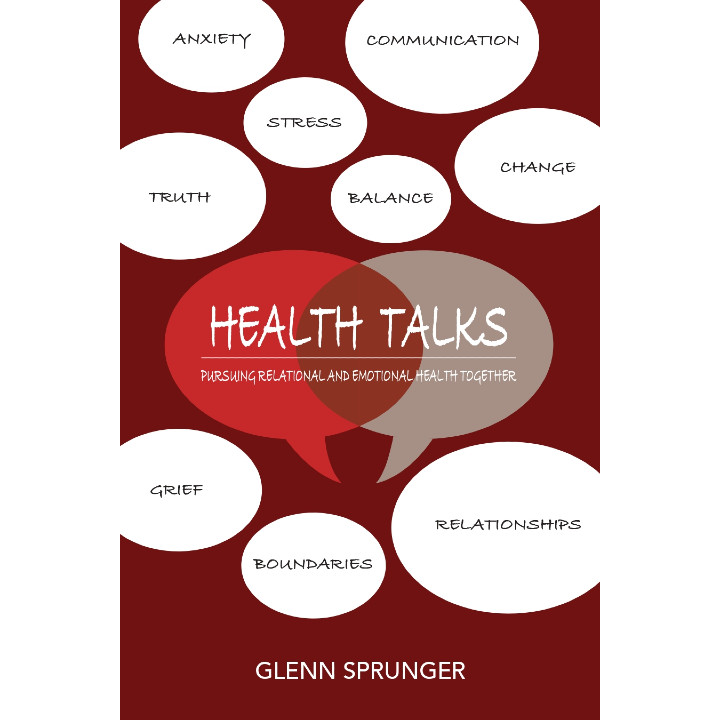
Learning good ways to connect with people can be a quite a challenge. Many of us just do not know what to say when we are faced with the challenge of connecting with people around us. We may want to talk with the person and show them that we care, but sometimes our own social anxiety paralyzes us, and we become mute. Most people don’t have much tolerance for silence when we are with people. Consequently, to avoid feeling uncomfortable, either we begin to fill the room with words or we do not put ourselves in these potentially awkward situations.
Another challenge that we face when trying to connect with people is our own discomfort with intimacy. We tend to keep our personal space from people who are hurting because we have been hurt by people. Although we may have a desire to help hurting people, hurting people may trigger strong feelings within us—feelings that we would rather not deal with. Sometimes the hurts in our own lives must be dealt with and healed before we are freed up to help hurting people. Unfortunately, ninety percent of communication is nonverbal. Most people already know that we have difficulty with connecting, and we are uncomfortable getting close to people. And so are they. But instead of working towards a common ground and establishing connected relationships, we tend to have superficial conversations and disconnected lives. Perhaps the message that people get from us by our space and superficial talk is that we do not really care about them. And that may or may not be true.
But what if we discovered ways to connect with each other without putting any pressure on us or on them? What if we learned some basic connecting skills that could ease our social tension? What if I told you that God cares so much about you and His people that He gave you this blog as a prop to help prepare you to connect with His people?
When approaching people who make you uncomfortable, recognize that they don’t make you uncomfortable—you do. But you are not alone. God is with you, and He designed you to connect with His people. When you realize that you are with people who are fearfully and wonderfully made in the image of God, you will begin a searching conversation, looking to discover God at work in their lives. The ironic part of this process is that most people do not believe or know God is up to something amidst their pain, problems, or illness. They may not recognize God’s hand in bringing our lives together. But God has a unique and timely way of bringing His people together to accomplish His purposes. Pastor Mark Batterson once said that God is more intent upon getting us where He wants us than we are. God is the Great Connector and Great Counselor. He puts people in our paths as part of His shaping process. How often do we go into situations with people “to minister to them” and they “minister to us?”
Here is the good news: you do not need to know what to say to people. In fact, most people will probably forget 95-100 percent of what you say anyway. What they will remember is that you were therewith them during a difficult time in their lives. The other good news is that, although you may not know what to say, God can and will speak through you.
Proverbs 16:1 says, “We gather our thoughts, but the LORD gives the right answer.” If we are listening to the other person and are listening to what God puts on our hearts to share, we serve as His messengers as He brings words of hope and healing to His people.
To get the conversation going with people, we can introduce ourselves. Ask for their name and ask how they got connected with this place where you are meeting them. Many times, this is all that it will take, and their life stories will begin to unfold. If you find that there are times of silence in your conversation, recognize that people are reliving their life stories and that many times their lives are filled with memories, trauma, and difficult emotions. You do not have to have any professional training to be with them in those moments. Asking generic questions, such as, “What was that like for you?” will show that you are listening and that you care about them. Maintaining good eye contact is a good way to communicate care. But don’t overdo it. Be aware that people who feel shame and guilt about their lives may feel uncomfortable just having someone next to them looking at them.
If this is your first encounter with people, do not be surprised if they choose not to talk with you and if they prefer to be left alone. They may have other people in their lives whom they share their life with instead of sharing some of it with you. Trust can take a long time to establish. Sometimes just sitting with people and not going away will be all that it takes to prove to them that you care, and then they may begin sharing some pieces of their lives with you. In our society, we tend to place too much emphasis on verbal communication. Words do have power, but not as much power as presence. Just being there communicates your care and your love.
Pay attention to what is going on in and around you. Your own feelings and memories may get triggered, along with those around you who may be listening. Be careful if you feel like you have to share something with them, and be careful if you feel an urge to make them feel better or say something to fix them. Ask God to help you discern when it is time to listen and when it is time to speak. When you feel that it is time to share a connecting experience from your life, remember to keep your story short. Share just enough for them to know that you have experienced a similar feeling or experience. Common experiences are connecting points. Also be aware of the potential for someone around you to get triggered, and they may go off on their own tangents and end the conversation. You may need to redirect the conversation to help people feel heard and valued.
You may also have an opportunity to ask people if you may share a verse from Scripture that God puts on your mind. You may also have an opportunity to ask people if you can pray with them and ask God’s blessing on their lives. If we recognize that lives are transformed by God and His truth, we will not be reluctant to share truth in love.
If we see “connecting” as God-orchestrated opportunities to connect people with God, then we will lean into opportunities to pray with people. Some of the most memorable connecting experiences happen when people stop what they are doing and take a moment to pray with us. When you pray with people, take your time. Use simple words. Keep your prayers short. You will be modeling for people that prayer is simply connecting with God. And remember—Jesus is seated at the right hand of God, and “He lives forever to plead with God on their behalf” (Hebrews 7:25). Enjoy the times that you have with God’s people. You may never get to see them again.

Stay tuned for next week’s blog: Connecting with God
